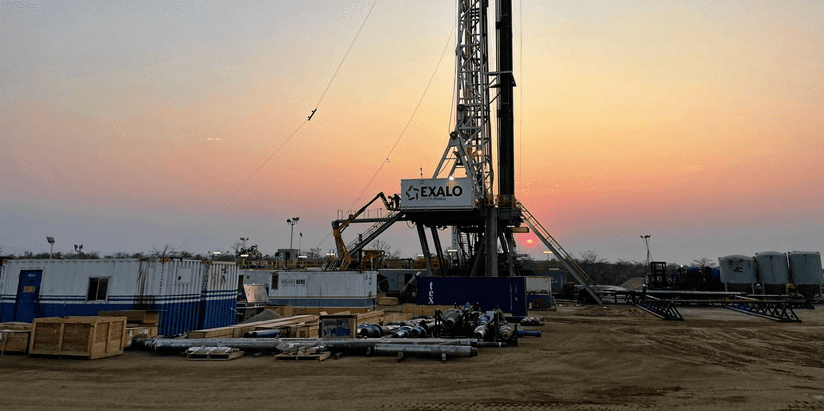Australian company Invictus Energy announced the success of its oil and gas exploration operations in Zimbabwe, as part of updating its results from its first well in the country.
The company stated that after the completion of the operations of the Mokoyo-1 well, 13 potential areas for oil and gas extraction were identified from the Arkoz and Upper Angoa formations.
It confirmed that the primary objective is the formation of Upper Angua with 11 potential hydrocarbon-bearing areas totaling 225 metres, according to a press release seen by the specialized energy platform.
The Mokoyo well is part of the Kapura Bassa project in Zimbabwe, which is 80% owned and operated by Invictus.
An amazing and unprecedented result
The company’s managing director, Scott McMillan, said the Mukoyo-1 well and lateral well had been “greatly successful”, with 13 potential hydrocarbon-bearing areas identified in the Arcos Grass and Upper Angoa formations.
“Remarkably, 225 meters of total potential for oil and gas has been identified in Upper Angoa, which still contains deeper untested potential,” he added.
She stressed that what was achieved represented “a remarkable and almost unprecedented result for the first well in a Frontier Basin, which created a new oil province and greatly reduced risks to the company’s wider acreage in the Kapura Bassa basin.”
“We are still interpreting all the data, with the results integrated into seismic data and basin models to guide future well locations and select exploration prospects.”
It is noteworthy that Mokoyo is considered one of the most promising oil exploration areas in the world in 2022, as it is estimated that it includes about two trillion cubic feet of natural gas, 845 million barrels of conventional gas condensate, and 4.3 billion barrels of oil equivalent.
Promising exploration prospects
Invictus said there is still deeper untested potential in the Mokoyo structure, as neither well drilled to the bottom of the Upper Angoa, nor did it reach the Lower Angoa Formation.
The excavations proved difficult, and some tools were difficult to obtain, which prevented the company from carrying out logging operations in the deeper parts.
The company has grounded the Exalo Rig 202 rig in Mukoyo-1, as it will undergo maintenance and upgrades before resuming work.
Invictus is considering whether to drill another well in Mokoyo or to drill the Baobab-1 well next, adding that there are other “promising exploration prospects” in the Kapura Bassa area.
She added that the reservoir still poses a moderate risk, while “the lateral extent and continuity of the reservoir sands remain unknown.”
Mokoyo and the lateral well showed a working hydrocarbon system, and the discovery of gas condensate and light oil “significantly reduces the remaining prospect risks in the basin,” Energy Voice reported.
Oil and gas exploration in Zimbabwe
Invictus Energy has been exploring oil and gas deposits in Zimbabwe for the past 4 years in the Kabura Bassa and Zambezi basins.
The Australian company had revealed – in August 2022 – that it plans to start drilling the first exploration well for oil and gas at the Kapura Bassa site in the northern part of Zimbabwe by early September.
The head of the local company, “Geo Associates”, affiliated to the Australian company, Paul Chimbudza, said that the first well, Mokoyo-1, will be at a depth of 3.5 kilometers, at a cost of $16 million.
It will take 8 weeks to drill the first well, after which another 1.5 kilometer well will be drilled, according to The North Africa Post.
The latest search for gas and oil comes 3 decades after ExxonMobil stopped seeking to secure crude oil in the region.
ExxonMobil was “chasing oil, not gas,” Chimbudza said, adding that at the time there was no gas market structure in the region.
He added that the American oil company participated in some exploration operations with Invictus.
demand for gas in Africa
The discovery of oil and gas in Zimbabwe could be a boost for the government of President Emmerson Mnangagwa, according to information monitored by the specialized energy platform.
Reportedly, Zimbabwe will receive up to 60% of the project’s output under a production agreement that is still being finalised.
“If we are successful, this project will be transformative and a game-changer for Zimbabwe,” said Invictus Energy Vice President Joe Mtizwa.
The exploration comes at a time of growing demand for natural gas in Africa, as governments around the world look to phase out old coal generation, as well as an alternative to Russian supplies.
Gas will play a critical role in providing an environmentally friendly and more cost effective alternative to base load power generation.
related topics..
Also read..

Leave a Reply